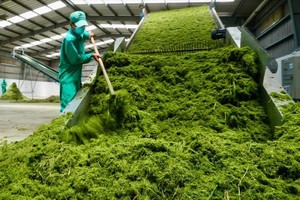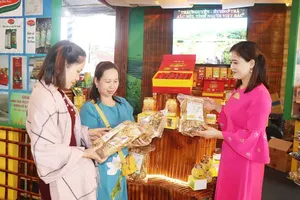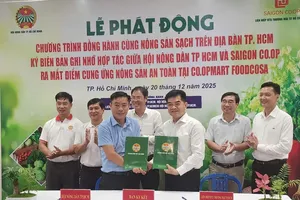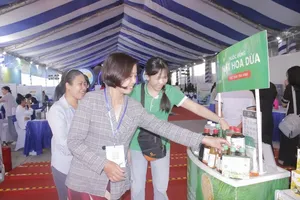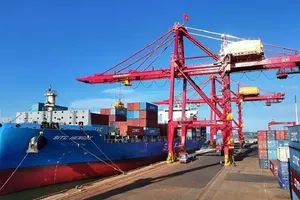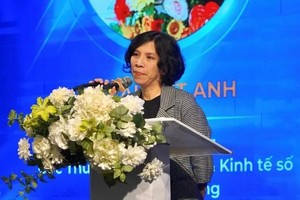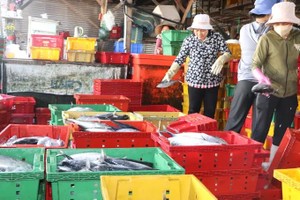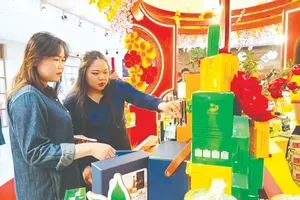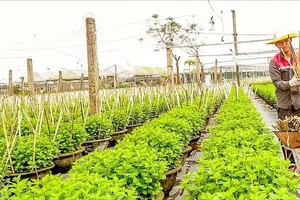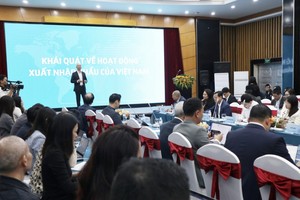
Mr. Pham Thai Binh, CEO of Trung An Company, said that the company was focusing on associating with farmers to establish high-quality rice-growing areas with 8,000 hectares in Kien Giang, Ca Mau, Hau Giang provinces, and Can Tho City. Of which, in this winter-spring rice crop, about 1,400 hectares of rice will apply a strict production process without using chemicals to create clean rice to export to fastidious markets, like the EU.
Trung An Company is one of the first enterprises to export to the EU market after the EU-Vietnam Free Trade Agreement (EVFTA) becomes effective.
According to Mr. Le Quoc Doanh, Deputy Minister of the MARD, Vietnam exports 6-7 million tons of rice annually to more than 30 countries and territories. In 2020, rice was a bright spot in agricultural products. The rice value has increased robustly. Especially, the price of rice has marked a historic increase in about a decade.
Vietnam's rice exports reached 6.15 million tons last year, with an estimated value of over $3 billion, up 9.3 percent in value, though the rice volume decreased by about 3.5 percent compared to 2019. This year, the rice industry has seen positive signs. Particularly, the winter-spring rice crop is growing well; the rice variety structure continues to improve; about 300,000 hectares of rice are expected to be harvested before the Lunar New Year with an estimated yield of 7 tons per hectare.
According to the MARD, provinces, and enterprises need to pay attention to developing organic and clean agricultural products that both bring high economic value and ensure environmental friendly factors. At the same time, it is essential to increase processing to create added-value and jobs and make the most of tariff preferences, thanks to the free trade agreements for agricultural products.
Trung An Company is one of the first enterprises to export to the EU market after the EU-Vietnam Free Trade Agreement (EVFTA) becomes effective.
According to Mr. Le Quoc Doanh, Deputy Minister of the MARD, Vietnam exports 6-7 million tons of rice annually to more than 30 countries and territories. In 2020, rice was a bright spot in agricultural products. The rice value has increased robustly. Especially, the price of rice has marked a historic increase in about a decade.
Vietnam's rice exports reached 6.15 million tons last year, with an estimated value of over $3 billion, up 9.3 percent in value, though the rice volume decreased by about 3.5 percent compared to 2019. This year, the rice industry has seen positive signs. Particularly, the winter-spring rice crop is growing well; the rice variety structure continues to improve; about 300,000 hectares of rice are expected to be harvested before the Lunar New Year with an estimated yield of 7 tons per hectare.
According to the MARD, provinces, and enterprises need to pay attention to developing organic and clean agricultural products that both bring high economic value and ensure environmental friendly factors. At the same time, it is essential to increase processing to create added-value and jobs and make the most of tariff preferences, thanks to the free trade agreements for agricultural products.



